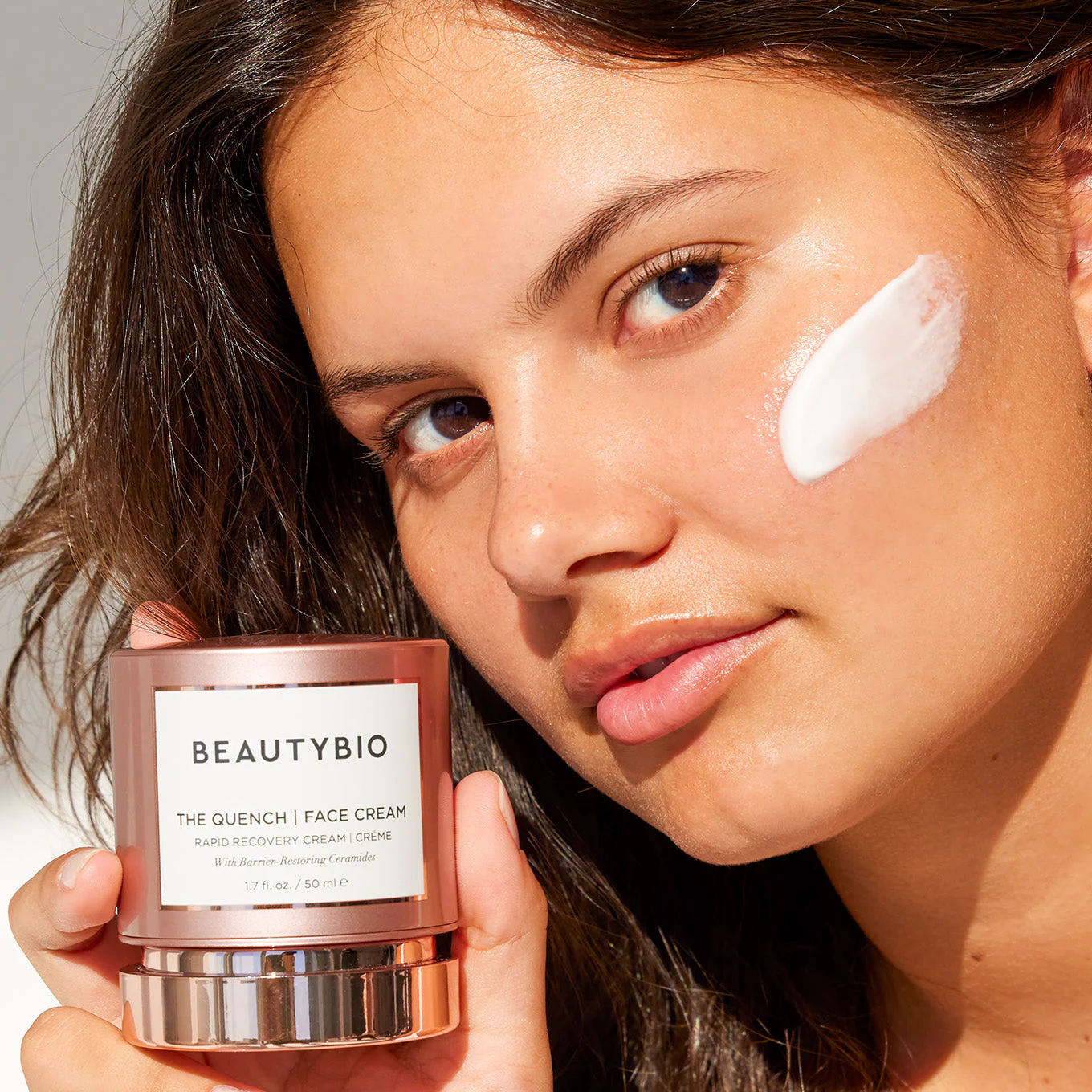
The Benefits of Face Whitening Cream
The Benefits of Face Whitening Cream
Face whitening cream have gained popularity in recent years. Many people desire a brighter complexion. These products promise to lighten skin tone and reduce dark spots. While the market is saturated with options, it is essential to understand their benefits and workings. This blog will explore various aspects of face whitening creams. Read on to discover how they can enhance skin appearance.
In an age where beauty standards evolve almost daily, the quest for radiant, flawless skin has led many to explore various skincare solutions. Among them, face whitening creams have carved a niche, captivating a diverse audience seeking to enhance their complexion. With promises of a brighter, more luminous visage, these products often boast a blend of ingredients designed to target hyperpigmentation, dark spots, and uneven skin tone.
Historically, the use of skin lightening products has been fraught with controversy and varying cultural implications. While in some regions, lighter skin is associated with elegance and social status, others emphasize inclusive beauty that celebrates all skin tones. Today, the market is flooded with an array of formulations, from serums packed with Vitamin C to creams incorporating natural extracts like licorice and mulberry, each claiming to unveil the skin’s natural glow.
However, navigating this world of face whitening creams requires more than just understanding the market trends; it calls for awareness of safe usage, potential side effects, and a critical eye for ingredient transparency. In this blog, we aim to delve deeper into the realm of face whitening creams, exploring their benefits, challenges, and the best practices for achieving a luminous complexion while embracing the beauty of diversity.

Understanding Face Whitening Creams
Face whitening creams are formulated to lighten skin tone. They often contain active ingredients like hydroquinone, kojic acid, and vitamin C. These components work to inhibit melanin production. By doing so, they help in reducing pigmentation. Additionally, many creams contain antioxidants that promote overall skin health. Not only do they lighten the skin, but they also protect it from environmental damage.
Moreover, understanding skin types is crucial when choosing a face whitening cream. Oily, dry, and combination skin types require different formulations. For instance, those with oily skin may benefit from lightweight, oil-free creams. In contrast, individuals with dry skin may need more moisturizing options. It is essential to select products tailored to specific skin concerns. This ensures effectiveness and minimizes adverse reactions.
Furthermore, it is important to note that face whitening creams vary in concentration. Some products may contain higher levels of active ingredients. These can deliver quicker results but may also increase the risk of side effects. Therefore, starting with lower concentrations is advisable. Gradually increasing usage allows the skin to adapt without irritation.
Choosing the Right Product
When selecting a face whitening cream, research is key. Look for products backed by clinical studies. Reading user reviews can provide insight into effectiveness and safety. Additionally, consult with a dermatologist for personalized recommendations. Professional guidance ensures that the chosen product aligns with individual skin needs.
Check the ingredient list meticulously. Natural ingredients like licorice extract and papaya enzymes offer gentler alternatives. These components lighten skin without harsh chemical effects. Furthermore, prioritize creams free from parabens and sulfates. These preservatives can aggravate sensitive skin and lead to unwanted reactions.
Another important factor is the price range of whitening creams. High-end products often claim superior efficacy. However, affordability should not compromise quality. Many drugstore options provide excellent results at a fraction of the cost. Conducting a thorough comparison helps in finding effective yet affordable choices.
Also, consider the formulation type. Face whitening creams come in gels, serums, and lotions. Each formulation has its own merits. Gels may absorb faster but provide less hydration. Serums often contain higher concentrations of active ingredients and provide targeted treatment. Lotions generally offer more moisture, beneficial for dry skin.

The Application Process
Applying face whitening cream correctly is crucial for optimal results. Start by cleansing the face with a gentle cleanser. This removes impurities and prepares the skin for treatment. After cleansing, pat the skin dry with a clean towel. Avoid rubbing, as this can irritate the skin.
Next, apply a small amount of cream evenly across the face. Focus on areas with dark spots or pigmentation. It is advisable to use gentle, upward motions during application. This technique ensures better absorption and promotes blood circulation.
Allow the cream to absorb fully before applying other products. This is particularly important for those using serums or moisturizers. Additionally, consistent use is vital for achieving desired results. Most creams recommend application twice daily. Following the suggested routine maximizes the likelihood of effectiveness.
Moreover, sunscreen is an essential companion to whitening creams. Many active ingredients can increase skin sensitivity to sunlight. Therefore, applying broad-spectrum sunscreen during the day is crucial. This protects the skin from UV damage and prevents further pigmentation.
Potential Side Effects
While face whitening creams can be effective, they may also cause side effects. Some individuals may experience redness, irritation, or peeling. These reactions are often due to sensitive skin or allergic reactions to ingredients. Therefore, conducting a patch test prior to full-face application is wise.
In rare cases, prolonged use of certain whitening agents can lead to more severe skin issues. Hydroquinone, for example, is effective but can cause ochronosis, a condition that darkens the skin. Consequently, using it should always be under dermatologist supervision.
Another common side effect includes increased sun sensitivity. The use of whitening agents can compromise the skin’s protective barrier. Therefore, applying sunscreen becomes critical. Neglecting sun protection can exacerbate existing pigmentation problems.
Furthermore, individual reactions vary, emphasizing the importance of monitoring skin changes. If any adverse effects occur, discontinue use immediately. Consulting a dermatologist is essential for assessing skin health and exploring alternatives.

The Role of Lifestyle in Skin Tone
An often-overlooked aspect of achieving a brighter complexion is lifestyle choices. Diet plays a significant role in skin health. Consuming foods rich in vitamins and antioxidants enhances skin quality. Fruits and vegetables, particularly those high in vitamin C and E, promote an even skin tone.
Hydration is equally important. Drinking sufficient water aids in detoxification. This practice helps in maintaining skin elasticity and reducing dryness. Therefore, incorporating hydration into daily routines influences skin appearance positively.
Sun exposure is another critical factor. Limiting time spent in direct sunlight significantly impacts pigmentation levels. When outdoors, wearing hats or seeking shade minimizes skin damage. These precautions are vital, especially when using whitening products.
Stress management is essential for maintaining skin health as well. Stress can trigger hormonal fluctuations that affect skin tone. Engaging in relaxation techniques like meditation or yoga can help. Prioritizing mental well-being contributes to overall skin appearance.
Maintaining Results Over Time
After achieving desired results with face whitening cream, maintenance becomes crucial. Transitioning to a maintenance routine helps prolong effects. This may involve using a less potent cream or switching to a hydrating moisturizer.
Additionally, regular skin exfoliation is beneficial. Exfoliating removes dead skin cells, promoting a brighter complexion. This practice ensures that active ingredients in creams penetrate effectively. Gentle exfoliants like sugar or chemical peels can be considered.
Continuing sun protection is paramount. Even after achieving a lighter skin tone, UV rays can cause pigmentation. A broad-spectrum sunscreen with at least SPF 30 is recommended. This minimizes the risk of reverting to a darker complexion.
Periodic skin assessments with a dermatologist can help. Professionals can provide insights and recommend adjustments as skin changes. This proactive approach ensures that skin remains luminous and healthy.

Common Myths Surrounding Face Whitening
Numerous myths surround face whitening creams. One prevalent myth is that all whitening products are harmful to the skin. While some harsh chemicals can cause issues, there are safe and effective options available. Choosing products with natural ingredients mitigates potential risks.
Another misconception is the belief that instant results are achievable. Many expect immediate outcomes, leading to disappointment. However, most products require consistent use over weeks or months for visible changes. Patience is essential in the journey to achieving a brighter complexion.
Some people believe that using more product leads to faster results. In reality, over-application can cause irritation and skin damage. Following the recommended dosage ensures optimal efficacy without compromising skin health.
Lastly, there is a myth that darker skin cannot benefit from whitening products. However, people of all skin tones can experience uneven pigmentation. Therefore, face whitening creams can be beneficial for anyone seeking a brighter complexion.
Conclusion
In conclusion, face whitening creams can offer significant benefits when used correctly. Understanding the available products and their active ingredients is vital. Choosing the right cream tailored to individual skin types enhances effectiveness. The application process and the use of complementary products, like sunscreen, are essential for achieving desired results.
Moreover, lifestyle choices play an integral role in maintaining skin health. Diet, hydration, and stress management all contribute to an even skin tone. Recognizing and addressing potential side effects is also crucial for safe usage.
Lastly, continuing education about myths surrounding these creams is important. Being informed empowers individuals to make better choices for their skin. Face whitening creams can be a valuable addition to a holistic skincare regimen when used wisely and responsibly.

